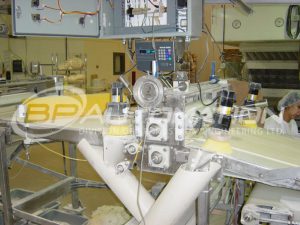Automating food processing brings drastic improvements in food quality and manufacturing process. It enables you to achieve efficient workflow, labor use, and allocation of resources. Automation in the food production industry also increase precision and consistency. One of the other major benefits from using robotic engineering is the reduction of contamination sources and hazards that can occur with manual labour.
Food processing has known to be a challenge for many businesses due to the difference in sizes when it comes to mass producing vairous food types. In recent years, a combination of robotics and systems have proven the automation processing of most food products. When robotics were first introduced into food processing it mainly concentrated on end of the line, however as demand increased up of the line production required further automation. Not only does demand continue to increase, systems are much more intelligent and makes this type of automation much more feasable to complete repetitive and precise tasks.
The tasks that have mainly been performed in food prodcution industry include: packaging, repackaging, palletizing, picking and production. Some of the newer applications include: raw food handling, meat processing, ready meal production, grading of fruits and vegetable and meat processing. Automated meat processing especially reduces the need for butchery and high risks associated with this process. The system also allows for tasks that would not be possible through human operation such as high force cutting and precision.
Here is a food processing machine that was designed and manufactured at BP Automation
We are ready to design and manufacture automation solutions in form of agile machines capable of revolutionizing your food processing facility. Automation will allow you to automate inspection on food products, evaluate food quality on a consistent basis, and reduce downtime and waste during food handling. To learn more about custom machining.



